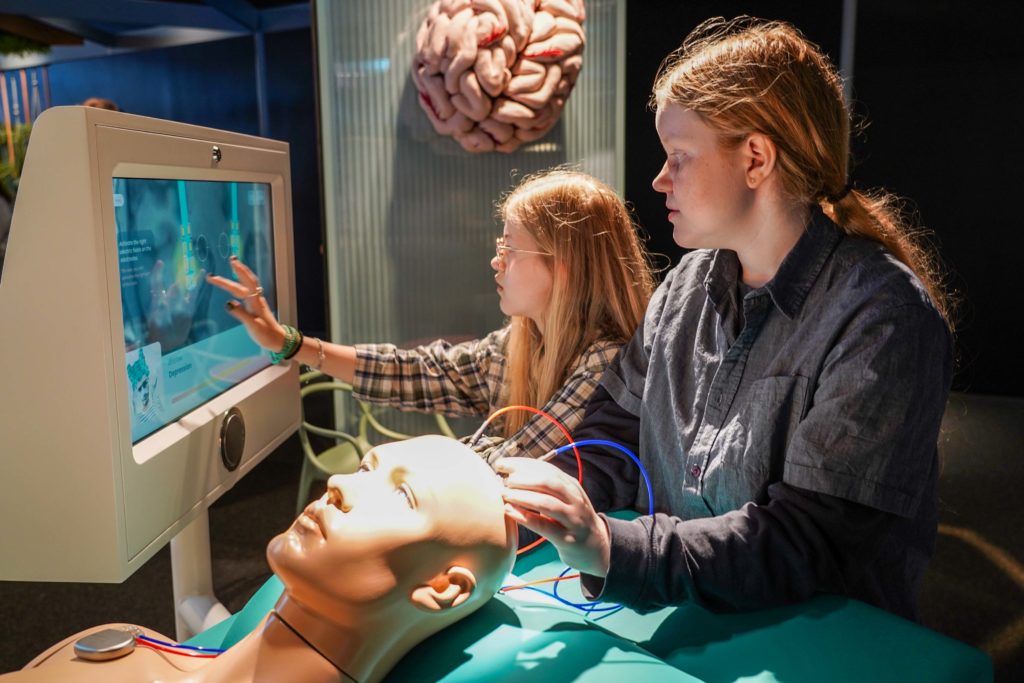Experimentarium Science Center, Denmark

Transforming Technology Mindsets
‘Future Human – How far will you go?’ addresses SDG number 4 – Quality Education by supporting the transformation of visitors’ technology mindsets. The exhibition offers a fast-track tour into a significantly neglected topic in Danish society and the school system: Technology comprehension. The exhibition helps visitors place their understanding of technology within a societal and ethical context and encourages reflection on the individual and social consequences and possibilities of technology. A democratic and sustainable mindset is essential for citizens in our highly technological world.
Making Technology Personally Relevant
The exhibition transports you to the year 2035 and focuses on six technologies that will profoundly impact our future lifes along with the ethical dilemmas associated with them. Technologies such as deepfake and CRISPR can be quite complex and challenging for many individuals to grasp. Through narrative scaffolding in videos, text, and scenography, visitors can immerse themselves in a personally relevant experience, exploring the necessity and operation of these technologies.
For example, visitors can learn about cloning a beloved deceased pet or edit DNA to remove dangerous pig-DNA for a new heart. Subsequently, the ethical implications of these technologies can be deliberated upon using six large telephone screens, where visitors can create a picture collage to express their feelings about the technology’s use. Alternatively, they can engage in ‘thought bubbles’ to delve into general ethical theories in engaging formats.
Negotiating the Learning Environment
During the exhibition’s development, we explored how to establish a context for transformative experiences and identity-building for visitors of all genders (SDG 5 – Gender Equity) ages, and socio-economic backgrounds. For instance, the activities were collaboratively designed with 8th-grade school classes representing various backgrounds and levels of science knowledge. Moreover, the exhibition was created in partnership with the Danish Council on Ethics to find the right blend of self-relevant content, natural science and ethics, aiming to help visitors develop their sense of responsibility as democratic citizens. Finally, we collaborated with national teacher training colleges to ensure that the exhibition aligned with the requirements of Danish public schools.
The majority of the exhibition was constructed using upcycled exhibition parts, aligning with SDG 12 – Responsible Consumption and Production.
Contributing to a Paradigm Shift
Science centers and museums are transitioning into an era characterized by socio-scientific exhibitions. ‘The Future Human’ exhibition has led the way in exploring innovative approaches to creating democratic and personally relevant interactive content. Additionally, teacher networks are encouraged to utilize the exhibition as a shared experience in technology comprehension, allowing them to develop similar learning models in their local schools. This, in turn, contributes to the continuous evolution of the socio-scientific learning design of the exhibition.
As a result, ‘The Future Human’ exhibition has impact -not only on enhancing technology comprehension skills and the quality of education -but also on the paradigm of generating socio-scientific learning environments. Its goal is to transform the way we, as democratic citizens, engage with and discuss science within our society.